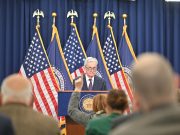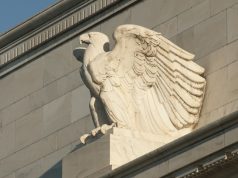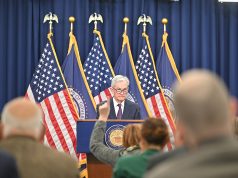
(Singapore, 04.08.2025)The political independence of America’s most critical economic institutions has come under unprecedented scrutiny following a series of swift and controversial actions from the White House.
Within a single weekend, President Donald Trump fired the head of the Bureau of Labor Statistics (BLS) and announced he would name a new appointee to the Federal Reserve’s Board of Governors after a surprise resignation.
These moves have ignited a firestorm of criticism, with former officials and economists warning that the political maneuvering could irrevocably erode public trust in the integrity of U.S. economic data and the autonomy of the central bank.
The catalyst for this weekend’s events was a seemingly routine, though historically large, revision to the national jobs data. On Friday, the BLS released a report showing that its previous estimates for May and June had been revised downward by a combined 258,000 jobs. Hours later, the White House announced the abrupt dismissal of BLS Commissioner Erika McEntarfer. President Trump, without providing any evidence, accused McEntarfer of “faking the jobs numbers” and undermining his administration’s economic message.
McEntarfer, who had been confirmed with a bipartisan 86-8 Senate vote in January 2024, responded to her firing on social media, describing her service as “the honor of her life” and praising the career civil servants who work tirelessly at the agency. Her defense of the bureau was soon echoed by a chorus of respected voices, many of whom expressed shock and alarm at the president’s decision.
Among the most vocal critics was William Beach, McEntarfer’s predecessor at the BLS and a former Trump appointee himself. Speaking on CNN, Beach called the firing “damaging” and “unfounded,” stating, “There is no way for a commissioner to rig the jobs numbers.” He went on to praise the BLS as “the finest statistical agency in the entire world,” highlighting the loyalty and professionalism of its staff. Beach recounted that similar large revisions, including one of 500,000 jobs, had occurred during Trump’s first term without any political interference, underscoring that the process is a normal part of the BLS’s methodology.
Former Treasury Secretary Larry Summers, a veteran of both the Clinton and Obama administrations, called Trump’s accusation a “preposterous charge.” He explained that the BLS data is compiled by hundreds of professionals following strict, detailed procedures, not by a single individual with a political agenda. The BLS itself provided a technical explanation for the revisions, noting they are a routine consequence of receiving additional data from businesses and government agencies after initial estimates are published. However, the sheer size of this particular revision—the 125,000-job downward adjustment for May being the largest of its kind since a massive revision in March 2020—provided an opening for the administration’s criticism.
White House economic advisors rallied to the president’s defense. U.S. Trade Representative Jamieson Greer acknowledged that revisions are normal but argued that the latest changes were “really extreme.” National Economic Council Director Kevin Hassett claimed that the “poorly explained” revisions were evidence enough to justify a “fresh set of eyes” at the BLS. Hassett insisted on Fox News that the president was not seeking to replace anyone who offered data he disagreed with, but rather to ensure the numbers were “more transparent and more reliable” under his own leadership.
A Two-Front Battle for Economic Control
The BLS controversy, however, is only one part of a broader story about President Trump’s efforts to exert influence over independent economic bodies. Simultaneously, the White House is preparing to fill a vacant seat on the Federal Reserve’s powerful Board of Governors, following the surprise resignation of Adriana Kugler. Her departure, which occurred well before her term was set to expire, hands the president a sooner-than-anticipated opportunity to appoint a governor who may be more aligned with his long-held preference for lower interest rates.
Trump has a well-documented history of hostility toward the Federal Reserve and its chairman, Jerome Powell. He has repeatedly used social media to publicly insult Powell, whom he has called “TOO ANGRY, TOO STUPID, & TOO POLITICAL,” for refusing to lower interest rates. The opening on the board could enable Trump to appoint a candidate who is a more willing partner in his economic agenda. Names floated as potential contenders include Kevin Hassett, former Fed Governor Kevin Warsh, current Fed Governor Christopher Waller, and Treasury Secretary Scott Bessent. The new appointee would not only fill a vacant seat but could also be a candidate for the chairmanship when Powell’s term expires.
The events have prompted concern from the private sector as well. Bank of America CEO Brian Moynihan weighed in, not on the political aspects of the firing, but on the implications of data volatility. He warned that large revisions to economic data can “create doubt” and undermine public confidence. Moynihan urged government officials to develop new ways of collecting data to make it more “resilient and more predictable.”
These two events—the firing of the BLS chief over data revisions and the opportunity to appoint a new Fed governor—are unfolding as Trump pushes ahead with a broader agenda of imposing new tariffs and “reordering the global economy.” The global stock markets have already been rattled by the uncertainty, and investors are watching closely to see whether these actions signal a full-scale assault on the institutions that have historically served as non-political arbiters of economic health and stability.
As President Trump prepares to announce his new appointees, the central question remains: will the new leadership be viewed as an attempt to improve data transparency and monetary policy, or as a fundamental challenge to the independence of institutions that are the bedrock of the U.S. and global economic systems? The answer will likely define the contours of economic policy and market confidence for the foreseeable future.





































